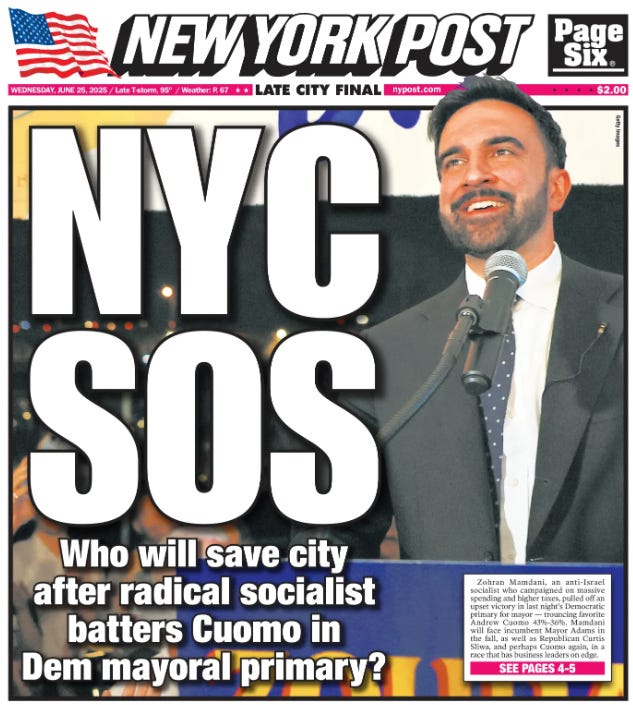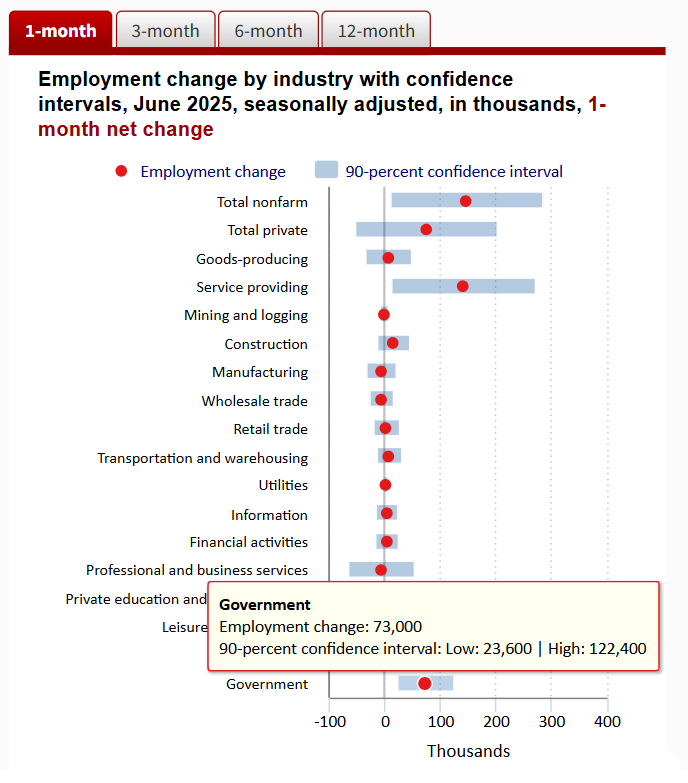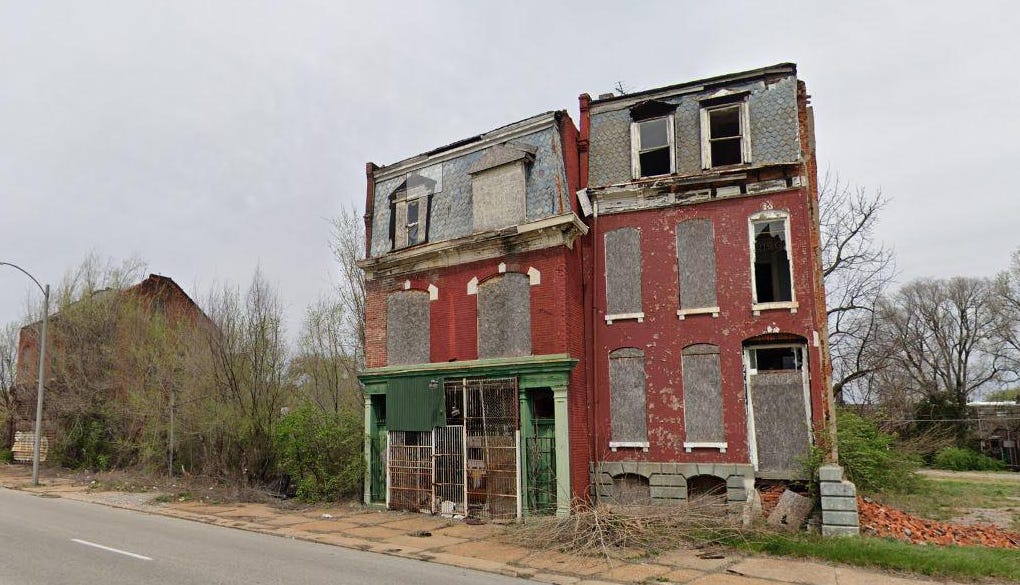And I won’t think twice to stick that barrel straight down Sancho’s throat. Believe me when I say that I’ve got somethin’ for his punk ass. – Bradley Nowell
“Santeria” is the sixth song on ska-punk band Sublime’s 1996 self-titled album. Singer Bradley Nowell had died of a drug overdose just over two months prior to the album’s release. Unable to participate in and experience the band’s subsequent success, the 28-year-old Nowell’s likeness and image were added into the official music video for the “Santeria” single that received significant radio and MTV airtime for the remainder of the 1990s. It remains a popular song with fans to this day, and Nowell’s son Jakob now tours with the remaining members of the band, having made his official debut at Coachella in 2024.
The “Santeria” music video is a real hoot. Portraying an Old West motif that includes the deceased Nowell’s pet Dalmatian named Lou-Dog, and an appearance by actor Tommy “Tiny” Lister Jr. of Friday fame.1
But it is another song on Sublime’s third studio album that seems more relevant to the events that unfolded last month right in the band’s home state of California.
The song “April 29, 1992 (Miami),” despite the geographical confusion the title may cause, is about the 1992 Los Angeles riots that resulted from the acquittal of four LAPD officers who stood trial after being filmed mercilessly beating a man named Rodney King on the side of the 210 highway in Los Angeles, after a high-speed car chase.
Forgotten in most conversations about these evens is the fact that King was driving upwards of 100 mph while intoxicated, but still, if you’ve ever seen the video you have to find yourself thinking, “Jesus Christ, guys. WTF? Don’t kill the guy.”
The perceived lack of accountability for those with power was enough to set off a conflagration. And the city of Los Angeles burned.
Nowell recounts in song.
‘Cause everybody in the hood has had it up to here.
It’s getting harder and harder and harder each and every year.
Some kids went in the store with their mother
I saw her when she came out, she was gettin’ some Papmers.
They said it was for the black man.
They said it was for the Mexican,
And not for the white man,
But if you look at the streets
It wasn’t about Rodney King.
It’s this fucked up situation and these fucked up police.
It’s about coming up, and staying on top
And screaming 1-8-7 on a motherfuckin’ cop2
It’s not in the paper, it’s on the wall.
National Guard! Smoke from all around!
Have a listen.
Yeah, “It’s getting harder and harder and harder each and every year.”
This is what happens when the money is broken, the CPI is manipulated, and an ever-growing proportion of the population finds it difficult to make ends meet, but the public is gaslighted into thinking the economy is great.
But how healthy is an economy if you can’t buy a home and “settle down” until you’re middle aged? And if that’s the case, then how likely are you to get married, start a family, become part of a community that builds towns, states, and a country where the next generation of American tax payers can thrive?
I wasn’t sure if Economista Austriaco above was correct in his data, so I checked another source. “Average” and “Median” are two different things, but it painted the same picture.
And data from the National Association of Realtors show that a higher and higher percentage of home buyers are likely doing it not for shelter, but for investment purposes.
House flippers and AirBnB investors are setting themselves up for a world of hurt if the hyper-financialized housing market can’t keep rising.
And in the meantime it gets harder and harder and harder each and every year to settle down, raise a family, and build the kind of life your parents and grandparents did.
Maybe this is why President Trump wants so very badly for interest rates to come down immediately. Maybe it’s not about interest rate expenses of the ever-expanding national debt. They’ve made it clear with the passage of Trump’s bill that they do not care about this. The debt will never stop rising.
Trump wants rates near zero, but it’s not about the 10-year. It’s about bringing mortgage rates down, keeping the housing market humming along, getting asset prices to balloon, and everyone who owns a house with large paper gains to tap Home Equity Lines of Credit so they can consume more than they would otherwise. That’s a large part of the “growth” that Trump keeps promising.
Again, the new bill that has just passed proved once and for all that there will be no cuts to the overall bloated government spending. It matters not who inhabits the White House, and President Trump finally said the quiet part out loud.
He posted this when there were still a few holdouts to his bill.
“REMEMBER, you still have to get reelected.”
And oh, how right he is. Not only will voters vote against you if you take stuff away from them or raise their taxes, or allow gas prices to rise too quickly, but they’ll come out in droves to vote for you if you promise them a lot of free shit.
So Trump can bluster all he wants about the “Communist Lunatic” that Zohran Mamdani actually is.3
But how far off are we from lunacy now when basically half the jobs in the “hot” nonfarm payrolls report this month were government jobs paid for by tax payers?
Melody Wright, who knows the American housing market intimately, notes there are 15 million vacant homes in the U.S., and there are over 3 million vacant seasonal homes.
Then, when you think about how many Baby Boomers will be passing on in the next ten to twenty years – the age cohort that owns the majority of these homes – then you must ask yourself, where are the buyers of these homes going to come from? China I guess…
Even if the Boomers pass their houses on to their millennial children, many likely can’t afford to pay the property taxes on those suburban McMansions.
And though I’m sure there are many nice places, does everyone want to live in Austin and Nashville and Florida? Probably not (though all would be better than New York City once the Mamdani-sponsored bread lines get instituted).
I never understood why people liked Florida so much, to be honest. I like the relative freedom they have there, and the no state income tax. But I like cold weather, and I don’t like the idea of dogs or toddlers getting eaten by alligators or fire ants. Just not for me I guess.
James Kunstler didn’t seem to think too highly of Florida either. In his recent appearance on the Coffee and a Mike podcast he said this about it:
It’s a very punishing place. It’s like living in a dog’s mouth. And as far as suburban clusterfucks go, it’s about as bad as it gets in America.
I laughed out loud when I heard that, and so after a bit more searching, I came across a TED Talk that Kunstlter gave way back in 2004.
Titled “The Ghastly Tragedy of the Suburbs,” it seems you can draw a straight line from Kunstler’s hypothesis of the root cause to the current-day problems that Melody Wright is talking about.
If you buy a house in a locality where there’s no sense of place, why would you care about the community? Why wouldn’t you leave it empty, barren, and fallow?
Kunstler comments:
Your ability to create places that are meaningful and a place of quality and character depends on your ability to define space with buildings…The public realm in America has two roles. It is the dwelling place of our civilization and our civic life, and it is the physical manifestation of the common good. And when you degrade the public realm you will automatically degrade the quality of your civic life.
He continues:
These will be places that nobody wants to be in. These will be places that are not worth caring about. We have about 38,000 places that are not worth caring about in the United States today. When we have enough of them we’re going to have a nation that’s not worth defending. And I want you to think about that when you think about those young men and women who are over in places like Iraq spilling their blood in the sand, and ask yourself, ‘What is their last thought of home?’ I hope it’s not the curb cut between the Chuck E. Cheese and the Target store. ‘Cause that’s not good enough for Americans to be spilling their blood for. We need better places in this country.
It’s a serious talk, but the sarcastic delivery makes for some serious laughs. Give it a watch and realize that we have been on this path for decades.4
Donald Trump is not going to save the economy. Congress is not going to mend the financial debacle that is to come. Non-bank lending stocks are all-in on this housing market and the fact that experienced commentators like Melody Wright are sounding alarm bells, makes me think that these types of companies are probably going to do a whole lot worse than the more regulated, Basel III-complying, too-Big-to-fail banks.
I would not chase performance here:
And I wouldn’t buy the dip here...
Or here...
Ironically, when I went to yahoo finance to check out some stock charts, the first article that came up was this:
Probably my computer tracking me, but if the only cities “holding out” as affordable markets are Pittsburgh,
St. Louis,
And Detroit...
...then consider me less than bullish on finding a good deal in real estate going forward.
But hey, on the flip side, urban blight is creating jobs too. Not only for construction workers who specialize in demolition, but for YouTubers who specialize in abandoned building photography. Here’s a whole hour on places you never want to find yourself in around the once-great city of Detroit...
The “Greatest Generation” fought in World War II, birthed the Baby Boomers, and passed on the prosperity that many Americans take for granted.
The “Silent Generation” born from around 1928 – 1945, were too young to fight in the war, but most of them spent their formative years suffering through the Great Depression. They were known to be frugal. If you grew up eating one meal a day and it was a peanut butter-stuffed baked onion, you would be frugal too.
America was not always prosperous. And its continued prosperity into perpetuity is not a foregone conclusion.
“Too-Big-to-Fail” is a real thing. I don’t like that fact, but it’s a reality (for now), and I would never want to be short a company like JPMorgan or Bank of America or Goldman Sachs. There are only two ways to play those companies. Long or On the sideline waiting for the bailout.
Don’t get me wrong. I am as long as anyone on this market. But I’m not long non-bank, subprime mortgage lenders. Despite all the signs pointing toward rates coming down (eventually), tech earnings continuing to beat the usually overly conservative Wall Street analysts, the Trump tariffs becoming at worst a non-issue, and at best a true, revenue generating Win, it might behoove us to hedge just a tiny, itty-little-bit by buying longer-term puts on those non-bank subprime mortgage lenders that are headquartered or operate the lion’s share of their business around areas like Detroit, Pittsburgh, or St. Louis.
Hey, maybe you waste the money on the put option premium. But if it’s all for naught, the rest of your portfolio will probably continue to rip higher.
And if that sickly-looking part of the subprime mortgage market goes to hell for a little bit, these companies will blow up and just be consumed by the system — by their (implicitly) government-backed peers. And you’ll be able to say you positioned yourself like a champ, made money from the bust, and plowed those gains into things like Big Tech digital monopolies, Too-Big-to-Fail financials, and bitcoin.
All three have the implicit (actually, kind of explicit now) backing of the U.S. government. So, let it burn, I say. Shareholders of the former two appreciate, even expect it. Owners of the latter (who hold their own keys) understand the anti-fragile nature of it, know they don’t need the government’s backing or permission, and realized a long time ago that…
Allocate accordingly.
👍Like and subscribe if one night you might delight in seeing me write more about urban blight.
If you don’t know the movie Friday (1995), you may remember Lister from The Dark Knight (2008) as the inmate who refuses to push the detonator button to play a part in the Joker’s sinister nautical version of a prisoner’s dilemma.
Section 187 (often referred to in slang simply as 187) of the California Penal Code defines the crime of murder. The number is commonly pronounced by reading the digits separately as "one-eight-seven".
Go search for his old tweets and interviews and believe people when they tell you who they are.
They changed the title on YouTube. You can find the original title here:
https://www.ted.com/talks/james_howard_kunstler_the_ghastly_tragedy_of_the_suburbs




















